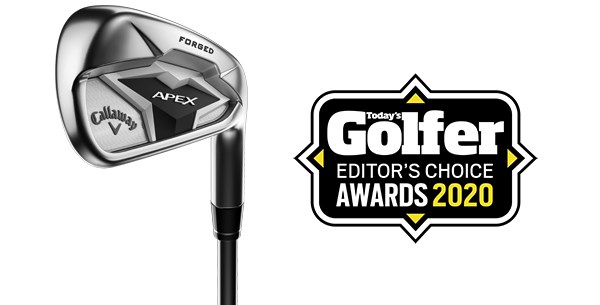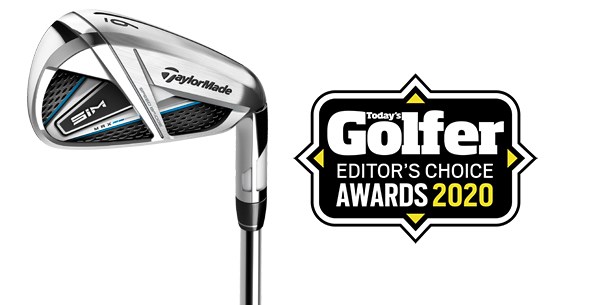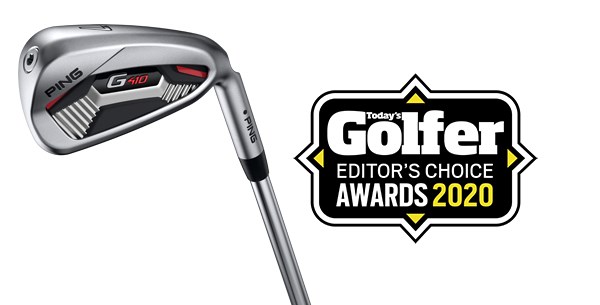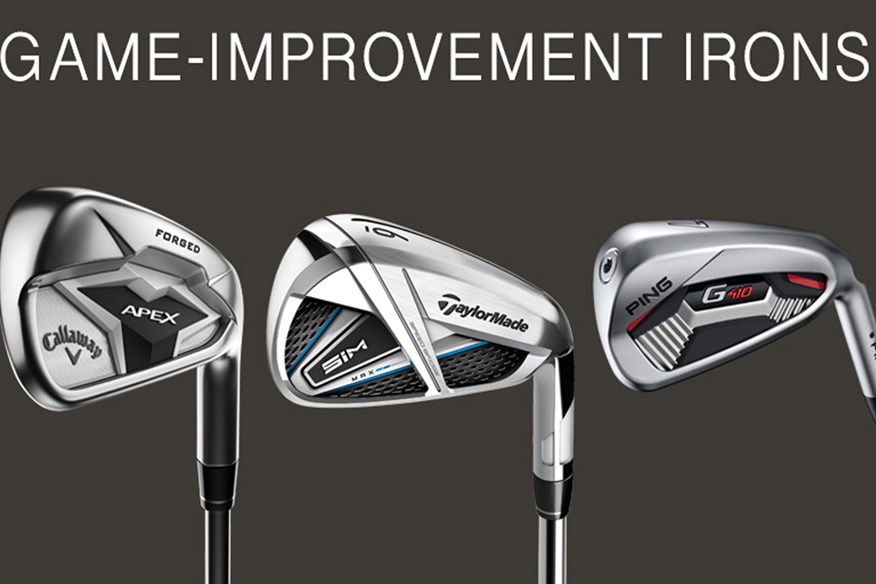Game Improvement Irons
Last updated:
Callaway Apex ’19 – £1,299 (steel) / £1,399 (graphite)
Callaway Apex irons had a reputation for being really, really good even before the 19 model arrived, so it’s no surprise this was among our favourite irons of last year.
By fine-tuning sound, feel and looks, plus including a new Elevate shaft that flights shots higher to drop and stop approaches on to a green, they’re just as good this year.
This is a beautiful iron, and for us at least we’d have its nose just out in front of the Callaway Mavrik (even though they give up five yards of carry) for anybody who feels a benefit from forged models. Essentially, the Mavrik has a 3.5° stronger loft (almost a club difference between the 7-iron lofts), so it’s unfair to compare them head to head, as they’re not really aimed at the same player.
But if you don’t feel the need for forged irons, the seriously powerful Mavrik should be pinging your radar instead.

TaylorMade SIM Max – £899 (steel) / £1,049 (graphite)
This is the year when brands are talking more than ever about dialling clubs into the particular sound and feel frequencies that golfers love. If you lay the impact sound of the SIM Max over TaylorMade’s forged tour-level P760, the pair are almost indistinguishable. For golfers, that means SIM Max is a cast iron that sounds like a forged model, and that is why the SIM will be a huge success in 2020. They offer something most cast irons struggle to match.
In our eyes the SIM Max doesn’t have a ridiculously wide top edge or tall face height (to improve face flex), or masses of offset, so they’re a really good-looking game-improver model, too.
Without the strongest lofts they might struggle to compete on pure launch monitor numbers (but the SIM Max OS will), but for sensible golfers who know the importance of optimal numbers for launching, flighting and descending shots on to a green, we reckon they’re a very reliable and consistent set to have in the bag.

Ping G410 – £126 per club (steel) / £136 (graphite)
You won’t often hear brands say they’ve improved forgiveness by making a club smaller, as reduced head size usually means less MOI. But Ping’s hierarchy insisted the G410 be sleeker and slimmer than any of the nine previous G irons.
G410 has a shorter blade length and 10% less hosel offset, which positions the G iron, looks-wise at least, closer to a players’ iron than ever before. Yet, magically, because the custom tuning port has moved to the toe, forgiveness is increased by 8%.
This is a great option for lots of club golfers, and particularly those who don’t overly stress about gaining distance (look at the Ping G710 if that’s you) with their irons.






